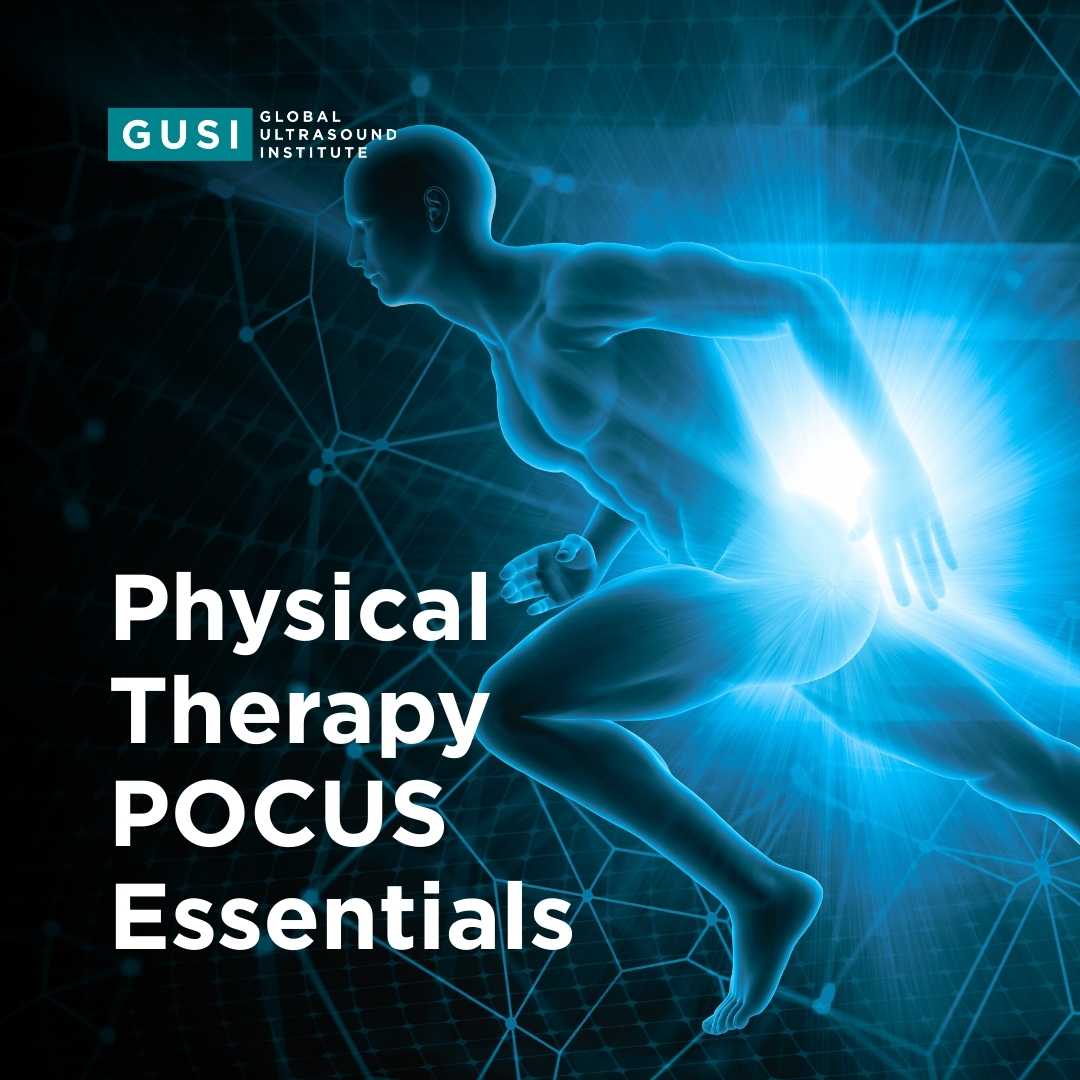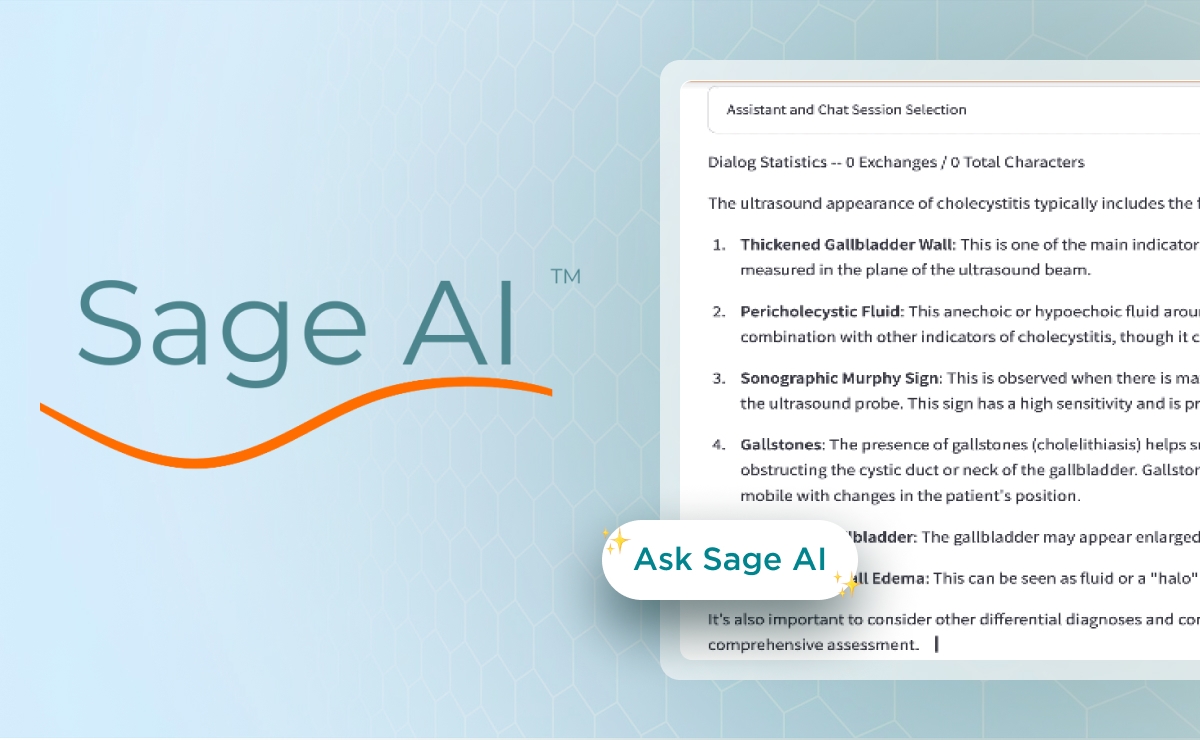From: $164 / year
Physical Therapy POCUS Essentials
The Physical Therapy POCUS Essentials course equips physical therapists with the skills to incorporate ultrasound into musculoskeletal assessments, enhancing diagnostics and treatment strategies in clinical settings.

From: $164 / year

Course Stats
Modules
Topics
Quizzes
Rating
Physical Therapy POCUS Essentials Description:
The Physical Therapy POCUS Essentials course is designed for physical therapists who want to enhance their clinical practice with the use of point-of-care ultrasound (POCUS). This course offers a practical, hands-on approach to ultrasound-guided assessments of musculoskeletal injuries, helping clinicians make real-time decisions about patient care.
Participants will learn key anatomical landmarks, probe positioning, and scanning techniques to assess soft tissue injuries, joint conditions, and rehabilitation progress.
With a focus on integrating POCUS into daily physical therapy practice, this course ensures clinicians can confidently utilize ultrasound to improve patient outcomes and streamline treatment plans.
Course Curriculum
Ultrasound Basics
Ultrasound Basics Physics and Probes
Ultrasound Basics Scanning Technique
Ultrasound Basics Machine Settings
Ultrasound Basics Artifacts
Ultrasound Basics Summary
Intro to MSK Essentials
Intro to MSK Essentials
MSK Pathology Review
MSK Pathology Review Part 1
MSK Pathology Review Part 2
Osteoarthritis
Intro to US Guided Injections
Intro to US Guided Injections
Shoulder
Diagnostic Shoulder
Diagnostic Shoulder Pathology
Ultrasound Guided Shoulder Injection
Elbow
Lateral Elbow Assessment
Lateral Elbow Pathology
Wrist
Carpal Tunnel
Carpal Tunnel Injection
1st Dorsal Compartment of the Wrist : DeQuervain’s Tenosynovitis
1st Dorsal Compartment of the Wrist Pathology
1st Dorsal Compartment Wrist Injection
Hands and Fingers
Hands & Fingers: Diagnostic Ultrasound
Hands & Fingers : Pathology
Hip and Pelvis
Anterior Hip Assessment
Anterior Hip Injection
Diagnostic Lateral Hip
Lateral Hip Scanning Technique
Lateral Hip Pathology
Sacroiliac Joint Injection
Hamstring
High Hamstring Diagnostic
High Hamstring Pathology
Mid-Distal Hamstring Part 1
Mid-Distal Hamstring Part 2
Posterior Lower Leg
Diagnostic Posterior Lower Leg: Achilles, Gastrocnemius and Soleus
Posterior Lower Leg Pathology
Knee
Intro to Knee Ultrasound
Anterior Knee
Posterior Knee
Lateral Knee
Medial Knee
Knee Pathology
Knee Injection: Scanning for Effusion
Knee Injection: Scanning Technique
Ankle
Ankle Tendons & Ligaments
Ankle Tendon & Ligament Pathology
Ankle Effusion Evaluation
Ankle Injection/Aspiration
Foot
Plantar Fascia
Plantar Fascia Pathology
Plantar Fascia Injection
Cardiac Echo
Cardiac Echo Case and Literature (PT)
Cardiac Echo Scanning Technique (PT)
Cardiac Echo Pathology and Pitfalls Part 1 (PT)
Cardiac Echo Pathology and Pitfalls Part 2 (PT)
Cardiac Echo Troubleshooting Part 1 (PT)
Cardiac Echo Troubleshooting Part 2 (PT)
Cardiac Echo Clinical Integration Part 1 (PT)
Cardiac Echo Clinical Integration Part 2 (PT)
Cardiac Echo Clinical Integration Part 3 (PT)
Cardiac Echo Summary (PT)
Lung
Pulmonology Case and Literature (PT)
Pulmonology Scanning Technique (PT)
Pulmonology Pathology and Pitfalls (PT)
Pulmonology Troubleshooting (PT)
Pulmonology Clinical Integration (PT)
Pulmonology Summary (PT)
COVID-19 Lung Disease (PT)
Abdominal Aortic Aneurysm
Abdominal Aortic Aneurysm Case and Literature
Abdominal Aortic Aneurysm Scanning Technique
Abdominal Aortic Aneurysm Pathology and Pitfalls
Abdominal Aortic Aneurysm Troubleshooting
Abdominal Aortic Aneurysm Clinical Integration
Abdominal Aortic Aneurysm Summary
Renal
Renal Case and Literature (PT)
Renal Scanning Technique (PT)
Renal Pathology and Pitfalls (PT)
Renal Troubleshooting (PT)
Renal Clinical Integration (PT)
Renal Summary (PT)
Deep Vein Thrombosis
DVT Case and Literature (PT)
DVT Scanning Technique (PT)
DVT Pathology and Pitfalls (PT)
DVT Troubleshooting (PT)
DVT Clinical Integration (PT)
DVT Summary (PT)
Skin Soft Tissue
Skin Soft Tissue Case and Literature
Skin Soft Tissue Scanning Technique
Skin Soft Tissue Pathology and Pitfalls
Skin Soft Tissue Troubleshooting
Skin Soft Tissue Clinical Integration
Skin Soft Tissue Summary
Global Ultrasound Institute proudly works with top universities, institutions and medical facilities across the United States and around the world
Why Choose Global Ultrasound Institute?
Expert-Led Training
Flexible Learning
Innovative Tools
Global Impact
What you will experience with GUSI’s Physical Therapy POCUS Essentials
DASHBOARD
Learning on demand
scanFolio Archive

SaGE Ai
What 18,000+ Clinicians Are Saying
Ready to Advance Your Medical Practice?
- Built by clinicians, for clinicians
- Backed by global POCUS training experience
- Trusted by providers across over 60+ countries

Didn’t find your answer?
No worries! If you have any other questions or need more information, feel free to reach out directly.
Have more questions? Send us a message.
Physical Therapy POCUS Essentials FAQ’s
Who should take the Physical Therapy POCUS Essentials course?
This course is ideal for physical therapists, sports medicine clinicians, orthopedic specialists, rehabilitation practitioners, pain management professionals, primary care providers, emergency medicine physicians, and musculoskeletal therapists.
What is the primary focus of the course?
The course focuses on ultrasound-guided assessment of musculoskeletal injuries, joint conditions, and soft tissue evaluations to enhance clinical decision-making in physical therapy.
Is there any commercial bias in GUSI’s educational content?
No. All GUSI content is created independently. We collect Conflict of Interest (COI) disclosures from all course contributors to ensure that no one involved has financial relationships that could bias the educational material. To ensure transparency and trust, we follow best practices in medical education to make sure our content remains objective, evidence-based, and free of commercial influence, especially from companies that sell ultrasound devices or related products.
How much does your POCUS training cost?
Empowerment and health equity are the heart of GUSI’s core values. GUSI’s mission is to make the best quality POCUS training affordable and accessible for clinicians worldwide. Price structure varies based on institution, practice setting, and number of participants. Please see our courses for specific pricing.
What medical specialties can apply to the program?
GUSI founders are family doctors who have trained hundreds of physicians in various specialties including family medicine, internal medicine, pediatrics, OB, and emergency medicine. Any clinician of any specialty is eligible to apply.
Can medical professionals from other fields, train with GUSI?
Yes. GUSI believes POCUS is the most revolutionary addition to the physical exam since the stethoscope. Our training programs are designed for all medical professionals who perform physical exams. This includes nurse practitioners, physician assistants, nurses, clinical officers, physical therapists, paramedics, EMTs, and more. Everyone can benefit from GUSI’s comprehensive ultrasound training to enhance their clinical practice.
Do you accept applicants from outside of the United States?
Yes. With backgrounds in global health, GUSI faculty have taught POCUS across Africa, Asia, North and South America. We currently support learners in over 120 countries worldwide. In alignment with our mission for health equity and empowerment, GUSI adjusts its pricing structure for resource-limited settings to improve access and impact.
What does the GUSI curriculum entail?
The GUSI curriculum equips healthcare providers with the skills to confidently use point-of-care ultrasound (POCUS) across diverse clinical settings.
It combines online coursework, review and assessments to support your journey from foundational knowledge to hands-on scanning expertise.
You can choose from flexible options, including:
- In-person 1–2 day courses for rapid skills development
- Comprehensive fellowship programs with structured mentorship and certification
- Self-paced online learning backed by expert-reviewed scan feedback
GUSI has supported clinicians in over 120 countries and adapts to the needs of global learners and health systems.
Will participants receive a certificate upon completion of the course?
Yes. GUSI provides a certificate of completion and a transcript with lessons completed and test scores. Residency directors also receive a template for minimum scanning competency based on AAFP curriculum guidelines.

Ready to master the Physical Therapy POCUS Essentials?












